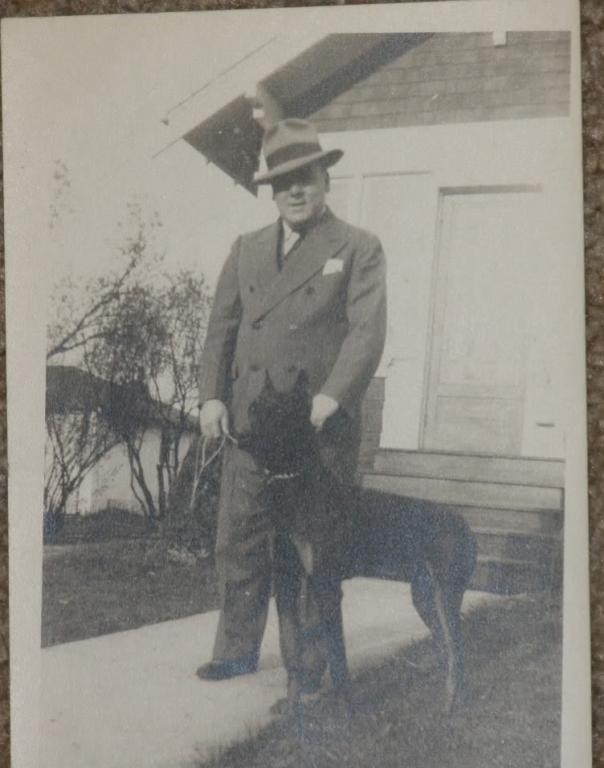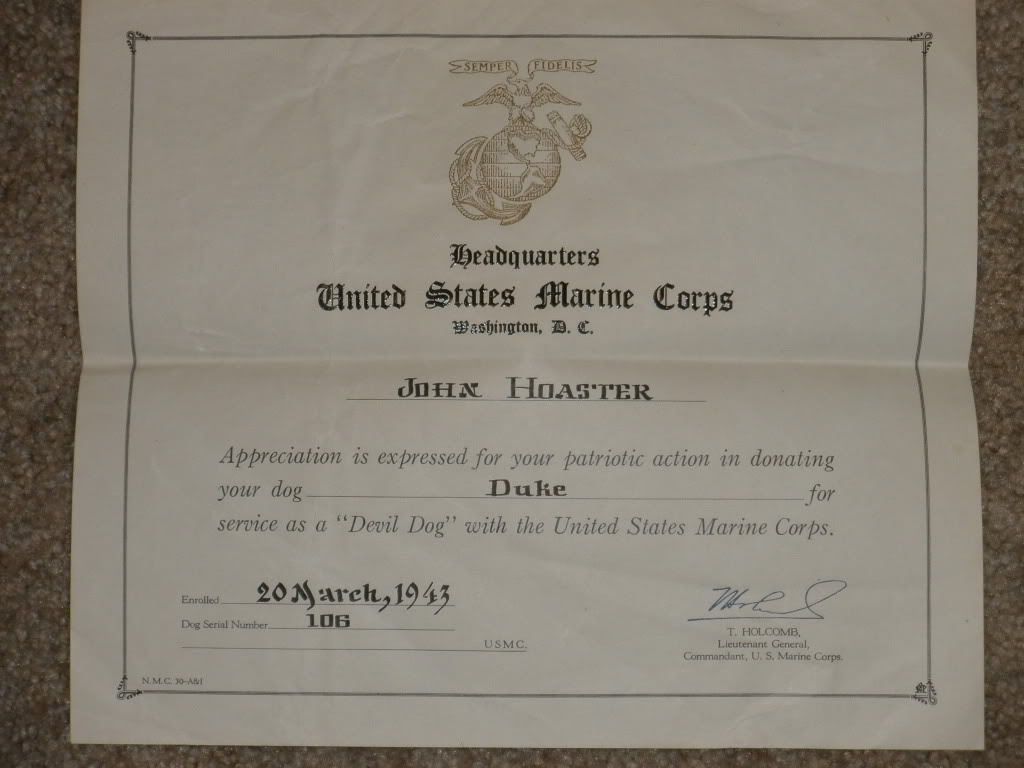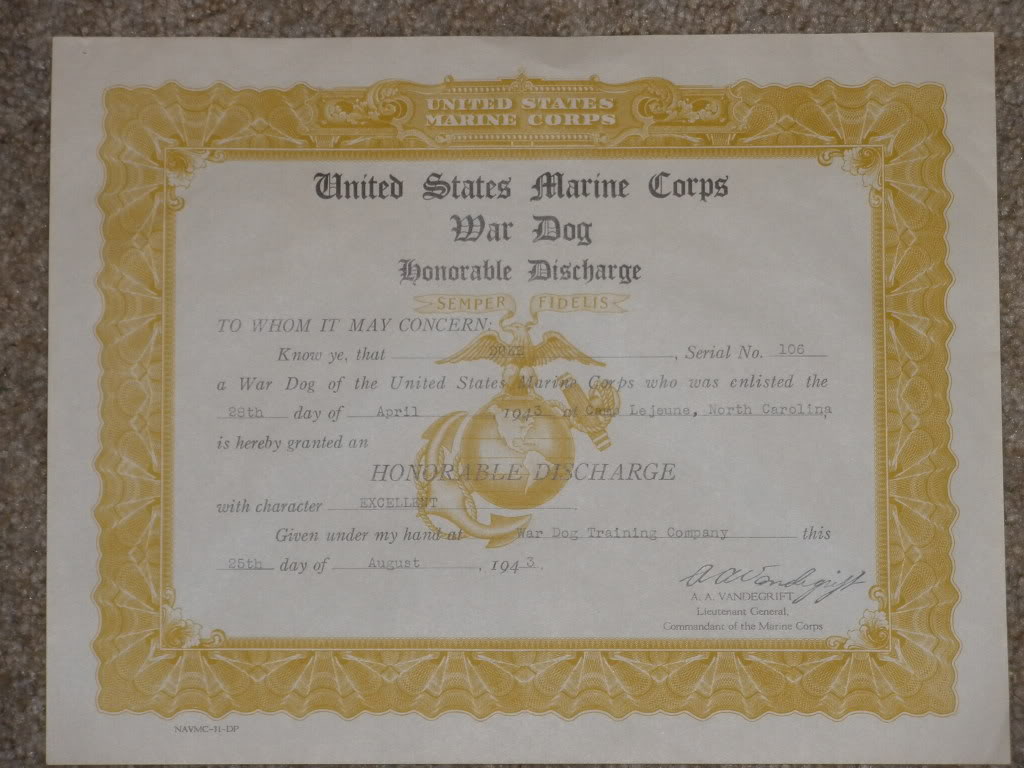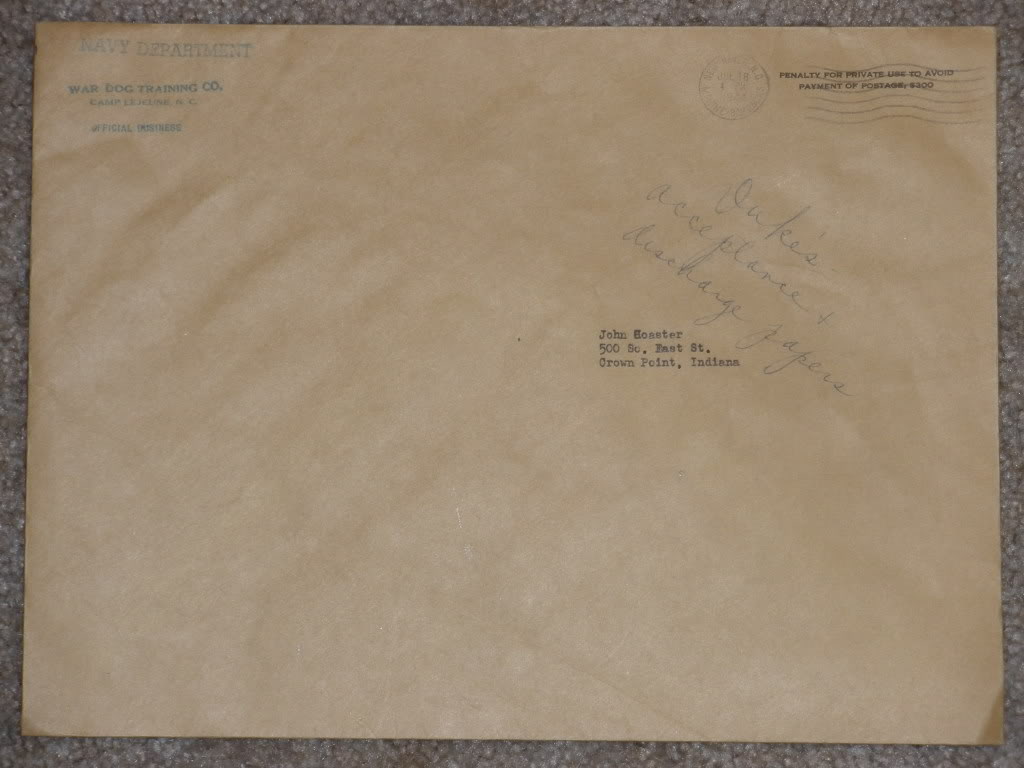-
FREE MEMBER
NO Posting or PM's Allowed

 M1 Garand Picture of the Day
M1 Garand Picture of the Day
More than 1,000 dogs had trained as Marine Devil Dogs during World War II. Rolo, one of the first to join the Devil Dogs, was the first Marine dog to be killed in action. 29 war dogs were listed as killed in action, 25 of those deaths occurred on the island of Guam. Today, the U.S. Marine Corp maintains a War Memorial (created by former 1st Lt. William W. Putney, who was the veterinarian for the dogs on Guam; and funded by public donation), on Guam, for those 25 War Dogs that served and died there during WW II.
Information
 |
Warning: This is a relatively older thread
This discussion is older than 360 days. Some information contained in it may no longer be current. |
|
-
04-27-2009 09:48 PM
# ADS
Friends and Sponsors

-
Legacy Member


Originally Posted by
CapnJohn

More than 1,000 dogs had trained as Marine Devil Dogs during World War II. Rolo, one of the first to join the Devil Dogs, was the first Marine dog to be killed in action. 29 war dogs were listed as killed in action, 25 of those deaths occurred on the island of Guam. Today, the U.S. Marine Corp maintains a War Memorial (created by former 1st Lt. William W. Putney, who was the veterinarian for the dogs on Guam; and funded by public donation), on Guam, for those 25 War Dogs that served and died there during WW II.
First time I heard the term "Devil Dogs" used to refer to "War Dogs". I am not saying that they were not, only that I never heard it.
Following is from "Wikipedia".
Currently in the Marine Corps, the term Devil Dog is a very common nickname for all Marines. "Devil Dog" was historically a well accepted term of endearment. Professional Military Education had stated "Devil Dog" is a title of honor, and should be regarded as such. "Devil Dog" should be called out when praising ones actions when they are in keeping with the high standards of the Corps. The "dog" in the phrase is usually depicted as a bulldog in line with the original 1918 poster. The bull dog is the official mascot of the Corps. A line of bulldogs had served as the unofficial mascot of the Corps since the 1920s, most named after General Chesty Puller.
USMC Master Sergeant Phil Mehringer (2008) explains it like this:
"The term "Devil Dog" has its origins at Belleau Wood. It was in a dispatch from the German front lines to their higher headquarters explaining the current battle conditions that described the fighting abilities of the new, fresh Americans as fighting like "Teufel Hunden" or "Hounds from Hell.""[3]
front lines to their higher headquarters explaining the current battle conditions that described the fighting abilities of the new, fresh Americans as fighting like "Teufel Hunden" or "Hounds from Hell.""[3]
[edit] Teufel Hunden is grammatically incorrect
A poster created by Charles B. Falls in 1918 (exhibited further up) was one of the first recorded references to the term.
In German, a compound noun is always a single word, so using two words "Teufel Hunden" is grammatically incorrect. The correct German would be Teufelshunde in nominative, genitive, and accusative cases, and Teufelshunden only in the dative. In either form, "Teufel" shifts to the genitive "Teufels" ("Devil's") so that the compound is literally "Devil's Dogs" or "Dogs of the Devil". Examples:
Sie waren Teufelshunde. - they were devil dogs.
Er war ein Teufelshund. - he was a devil dog.
Er sprach von den Teufelshunden. - he talked about the devil dogs.
This may suggest that the Marines were never actually referred to as "devil dogs" by German WW1 soldiers.[1]
Semper Fi, Joe
-
-
FREE MEMBER
NO Posting or PM's Allowed



Originally Posted by
Joe W

First time I heard the term "Devil Dogs" used to refer to "War Dogs". I am not saying that they were not, only that I never heard it.
Semper Fi, Joe
See the following:K-9 History: WW II PTO - USMC Devil Dogs!
Last edited by CapnJohn; 04-28-2009 at 06:13 PM.
-
Legacy Member

-
Thank You to Bob K For This Useful Post:















 Register To Reply
Register To Reply













